Tortoises of Isabela
This is the fourth post from the Galapagos Islands on this Ecuadorian odyssey with Adventures Abroad. In the first three we encountered many of the most famous species for which this unique archipelago is renowned such as Darwin finches, Galapagos penguins and sea lions and of course the one of a kind marine iguanas. However, we have yet to see any of the giant tortoises for which the islands are equally famous. In this post we’ll remedy that as we visit a tortoise breeding centre on Isabela where we will see species from all the different islands. With luck we might also spot tortoises in the wild as well as we follow the trail to a lava tunnel and a freshwater spring.
The last post took us from San Cristobal to the largest of the Galapagos Islands, Isabela and the small town of Puerto Villamil where we are based for three days. Our journey today starts on the dusty main drag as we pass Gracias Madre where we had a delicious Mexican meal the night before.
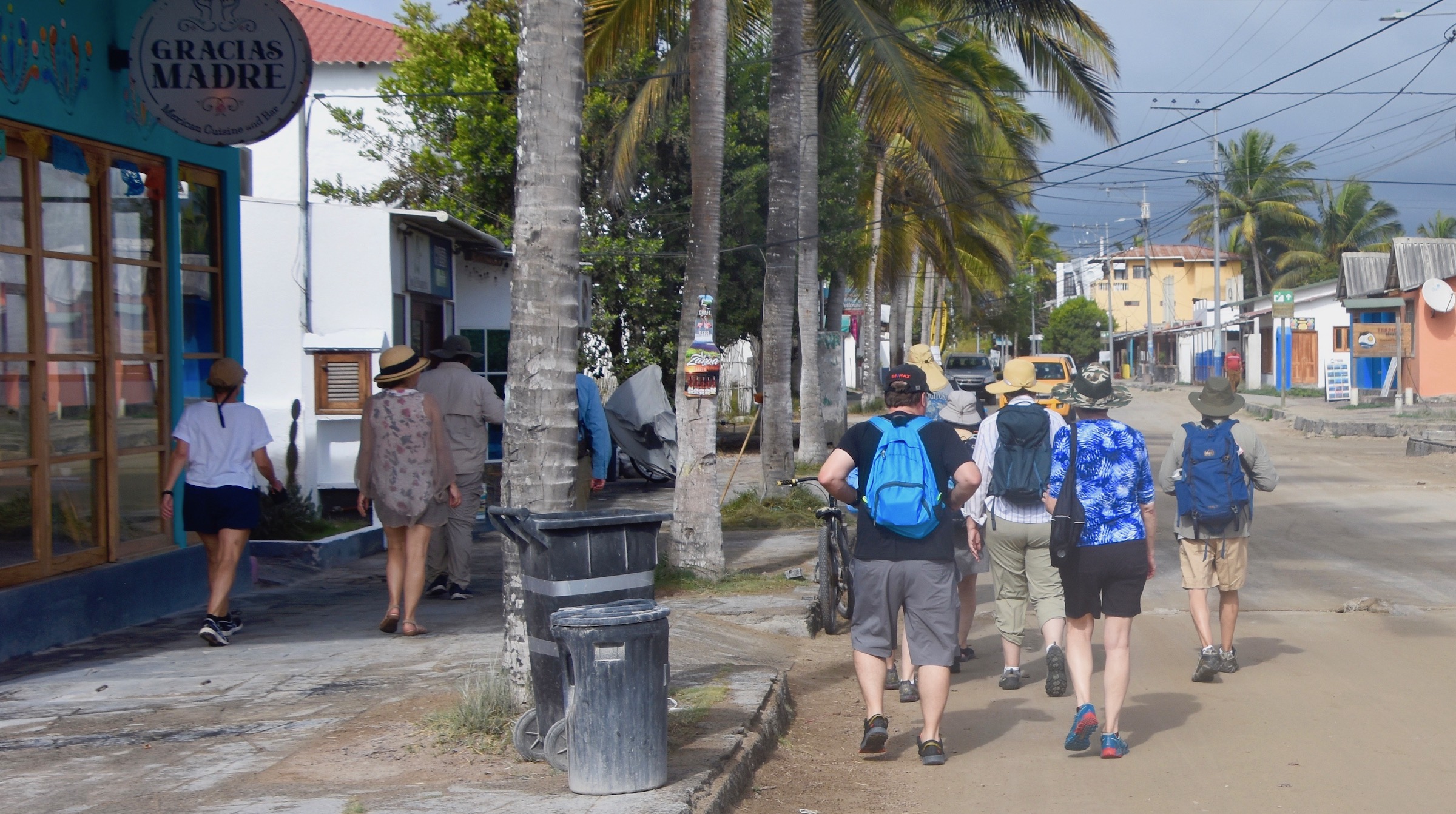
About a kilometre on the signs of civilization start to peter out and the street becomes a small lane where we find this very accurate road sign.
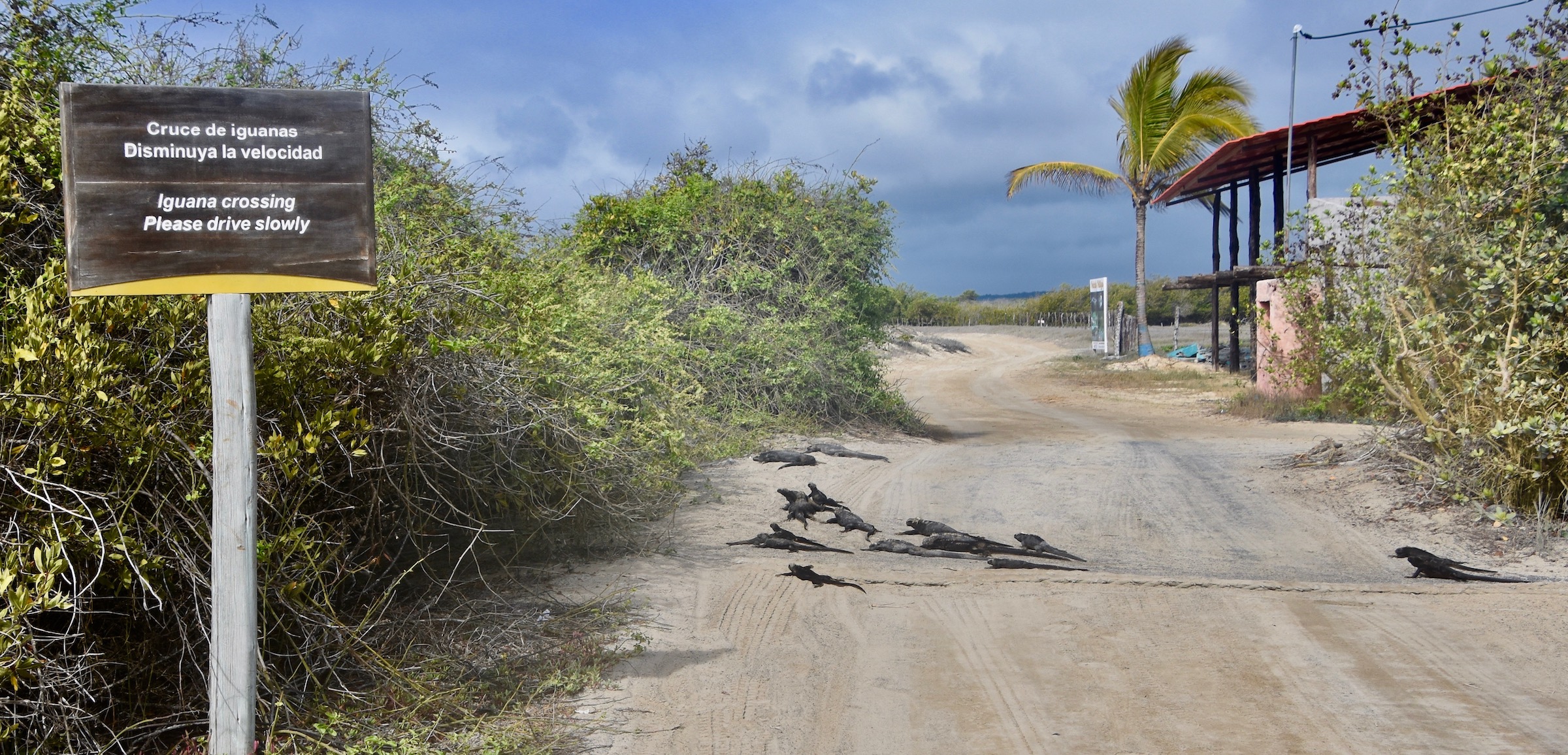
Our destination is the Arnaldo Tupiza Breeding Centre for Galapagos tortoises, one of three on the islands.
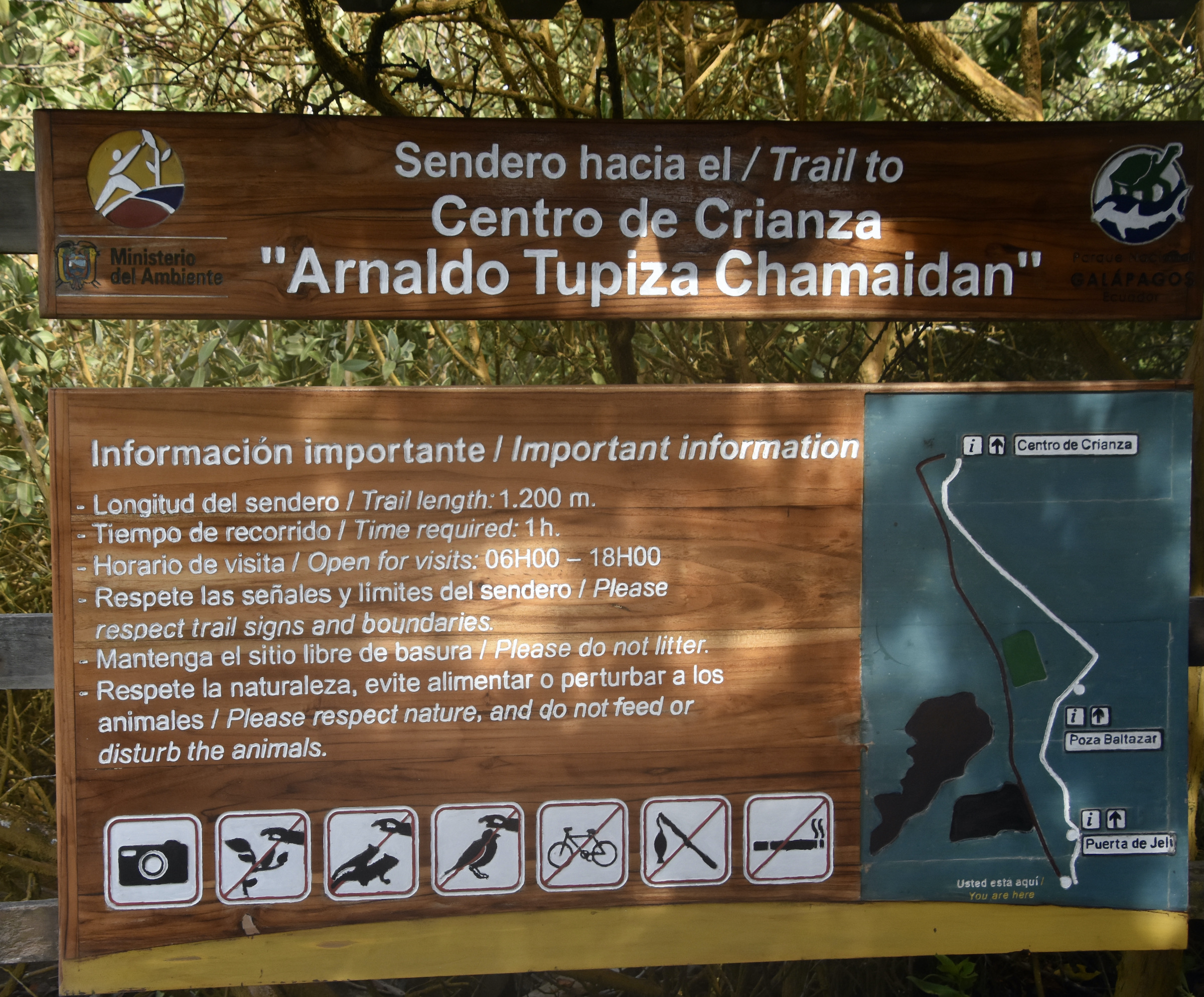
However, there’s a lot to see before we even get there including this large marine iguana warming himself on the entrance to a small bridge. As noted in previous posts, they look scary with those dorsal spines and very sharp claws, but are perfectly harmless. They are also oblivious to the presence of humans.
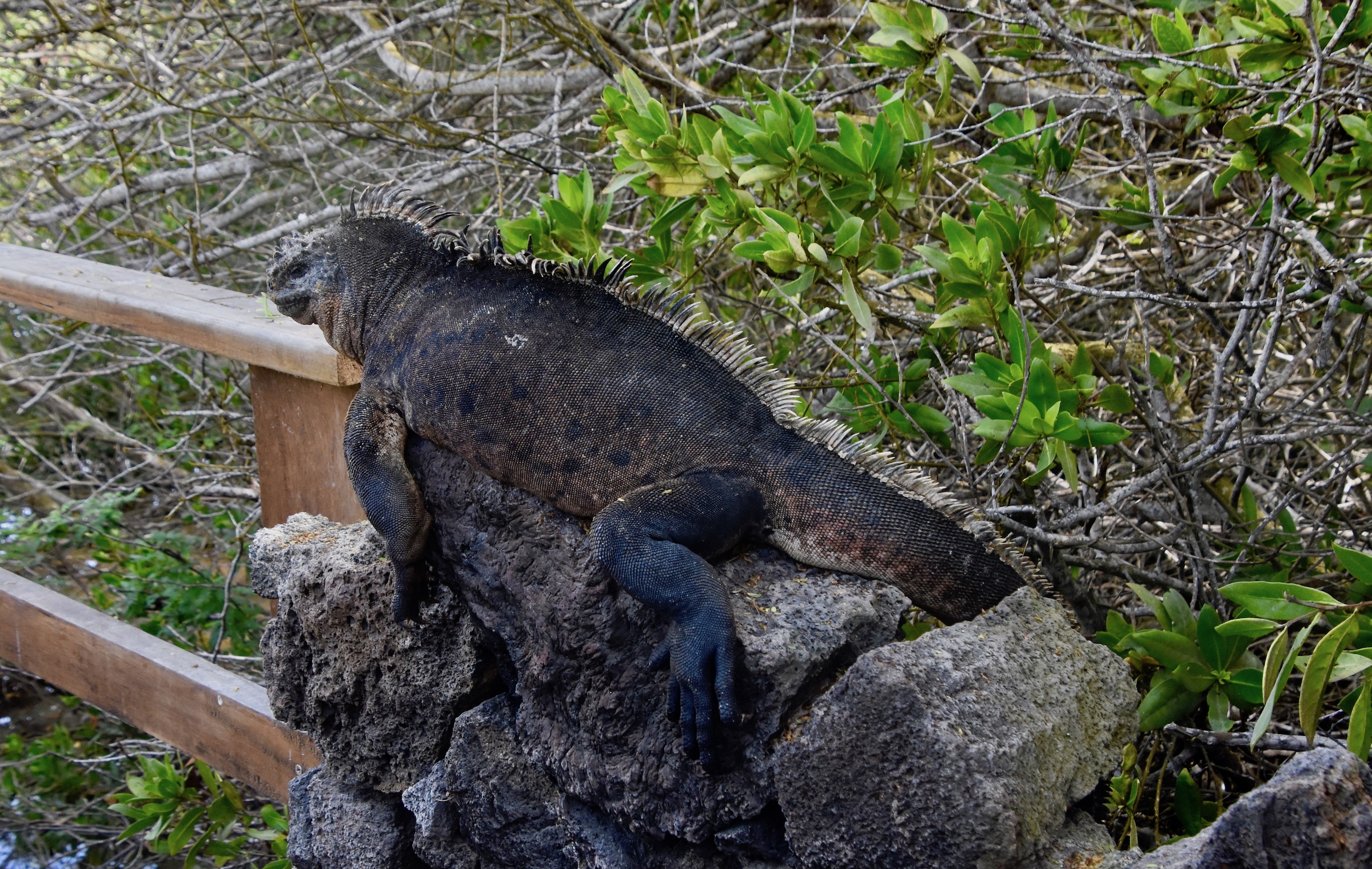
Further along the path gets quite overgrown and gnarly.
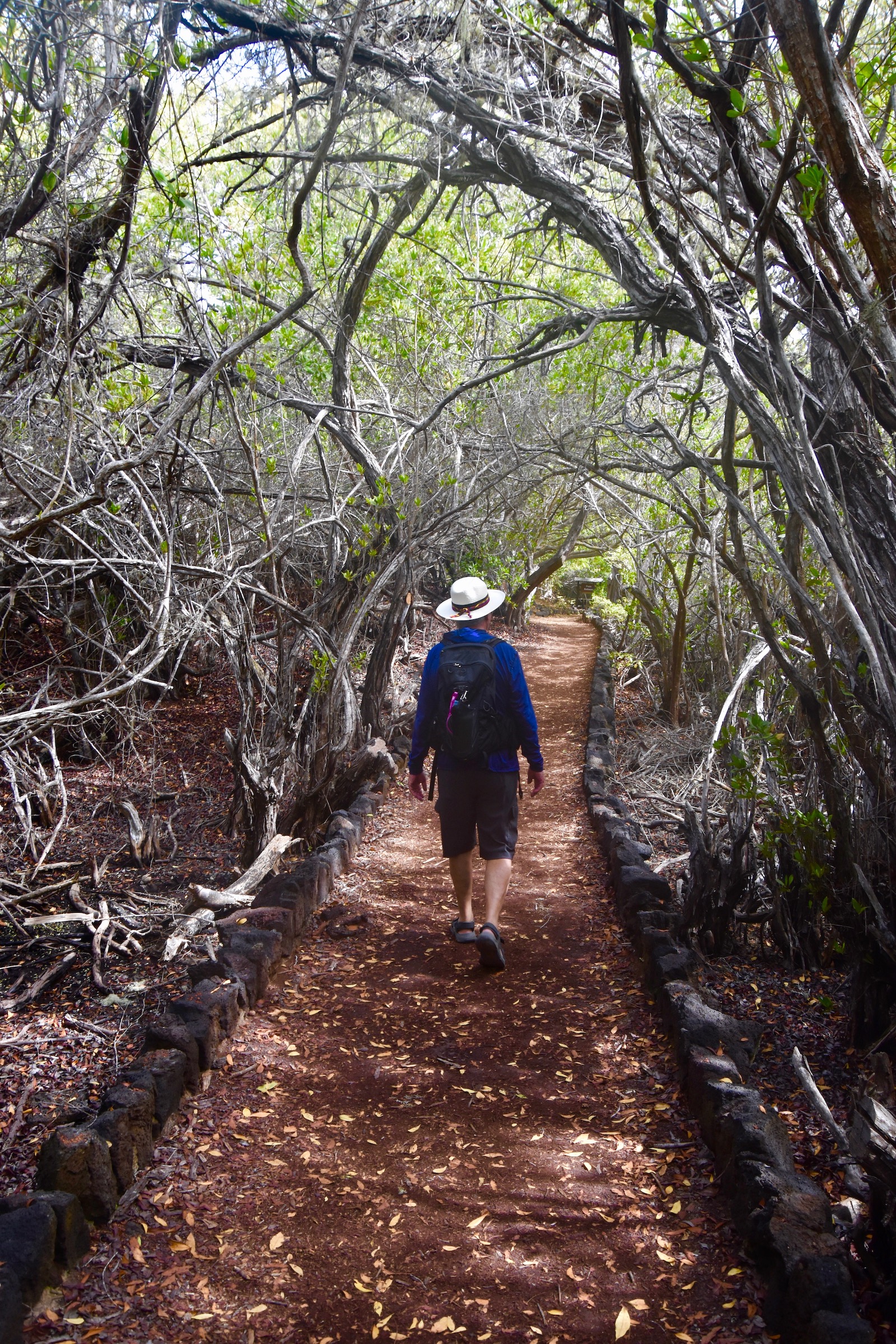
It’s the perfect environment to look for another species we have yet to see on the Galapagos, the Darwin tree finch.
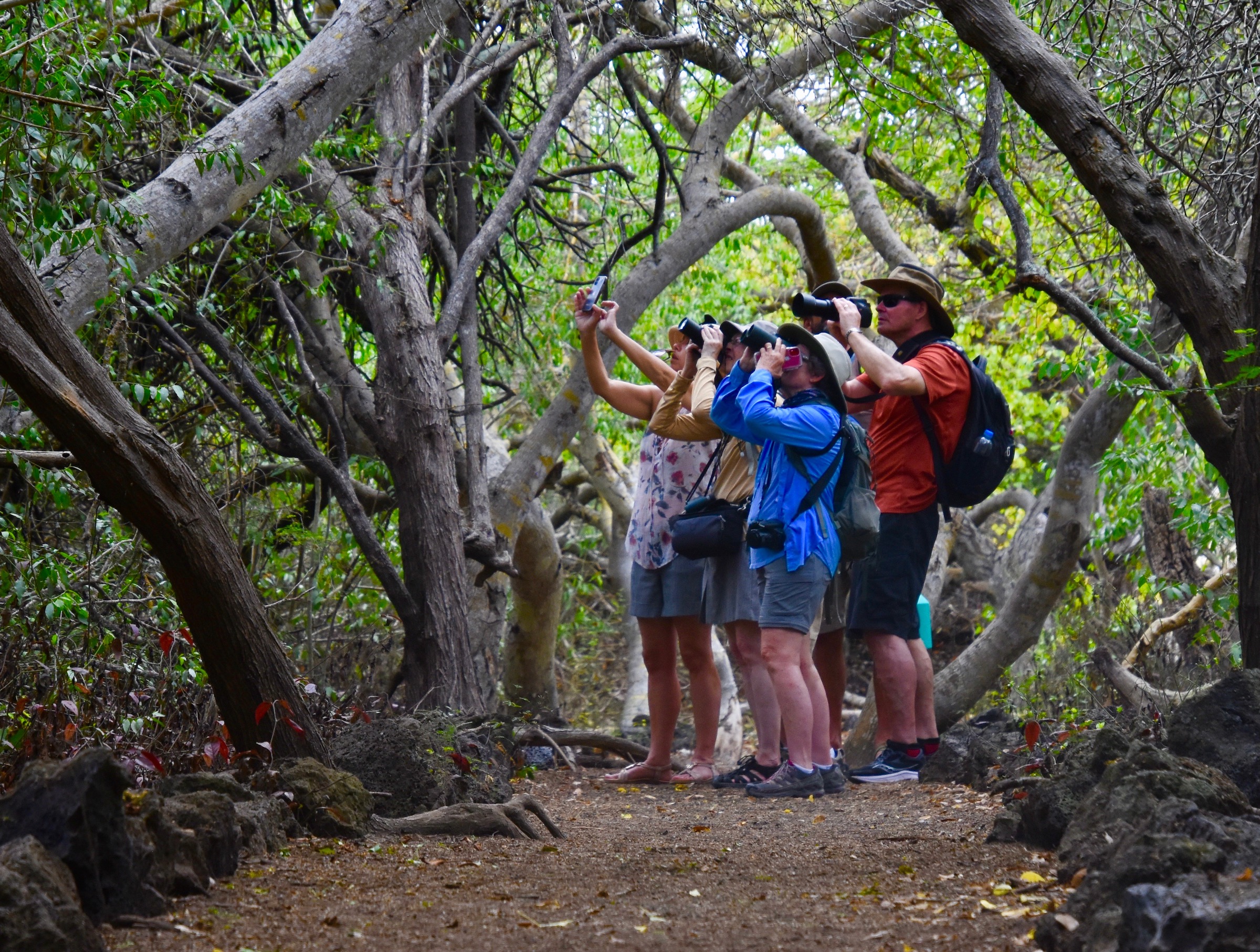
And right on cue a male tree finch obliges the group with his presence. Another life lister for all of us.
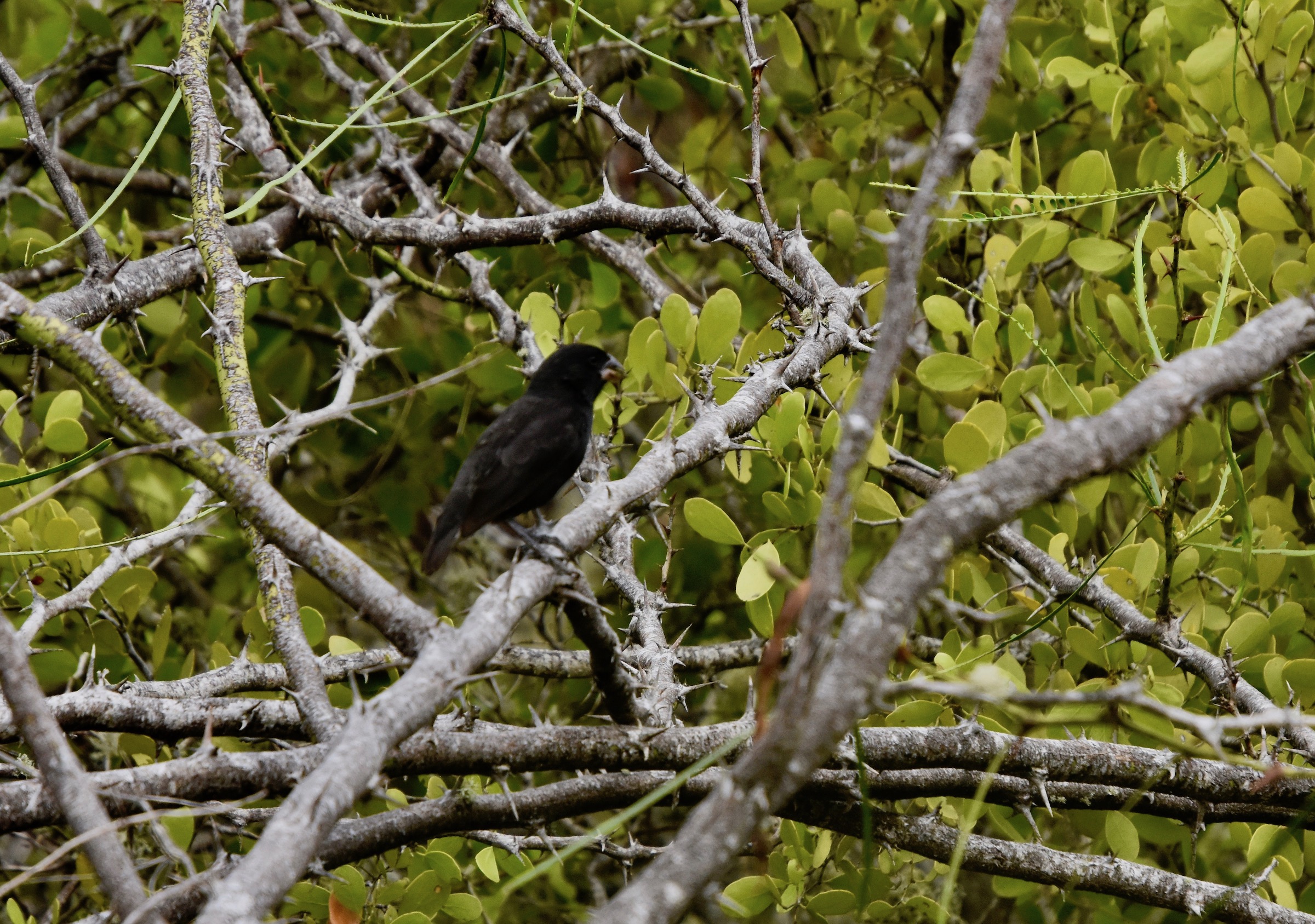
Shortly after this the trail comes out to the road at the entrance to the giant tortoise breeding centre and suddenly there are tortoises everywhere, separated by age and species. These are the breeding stock for the Isabela tortoises.
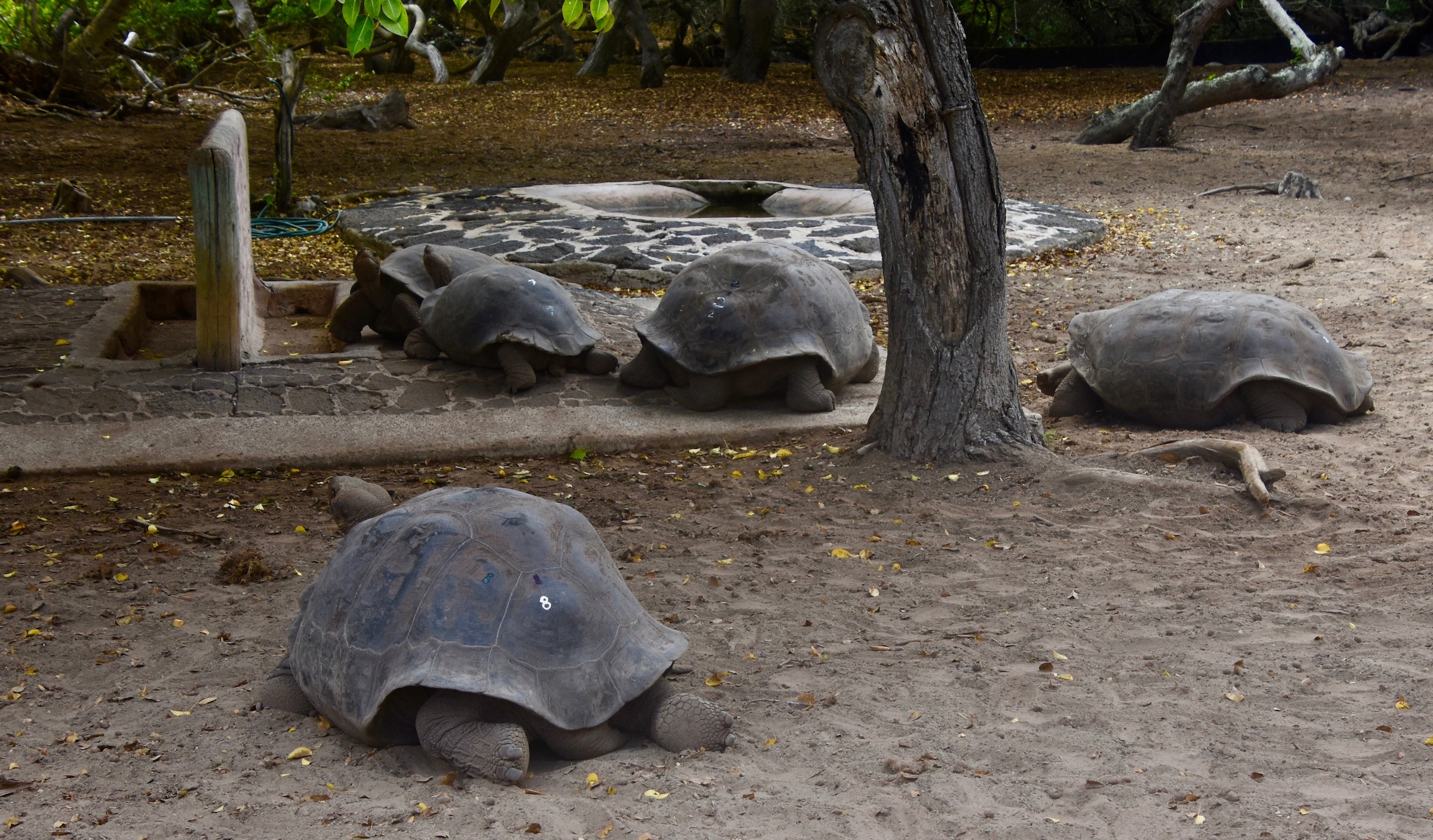
And breed they do. This male and female were engaged in the world’s slowest version of cherchez la femme.
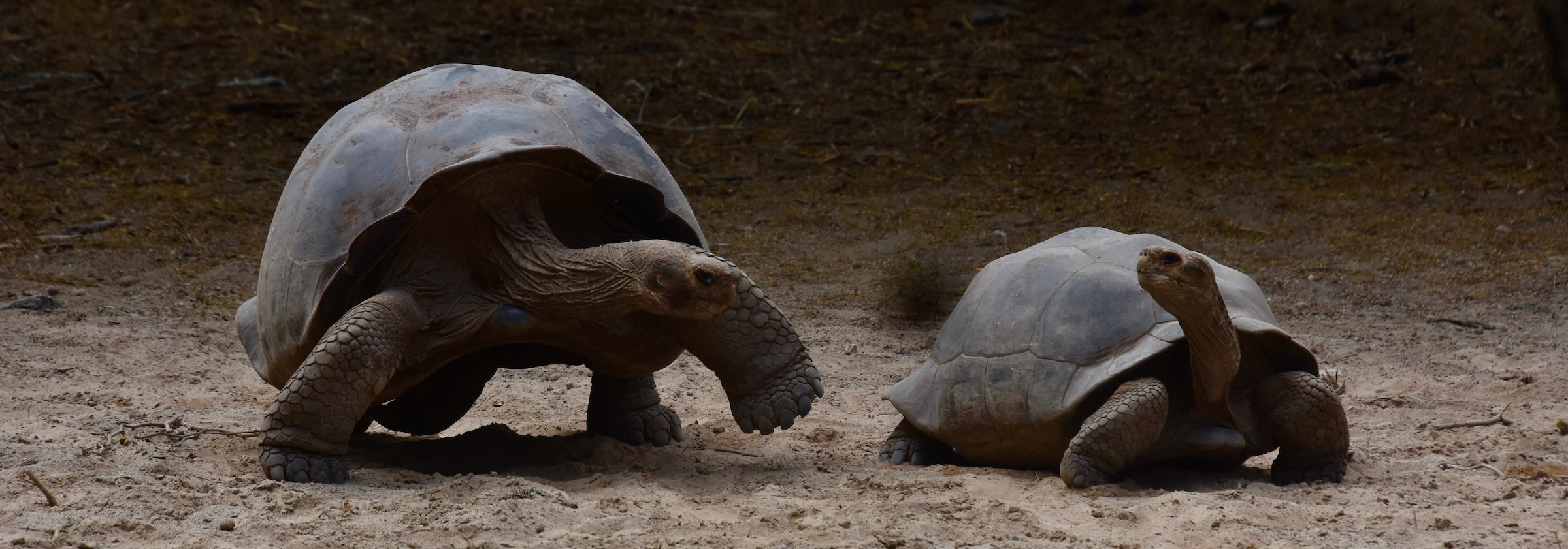
It took about fifteen minutes, but the male finally caught up the the female and the next generation of giant tortoises was on the way.
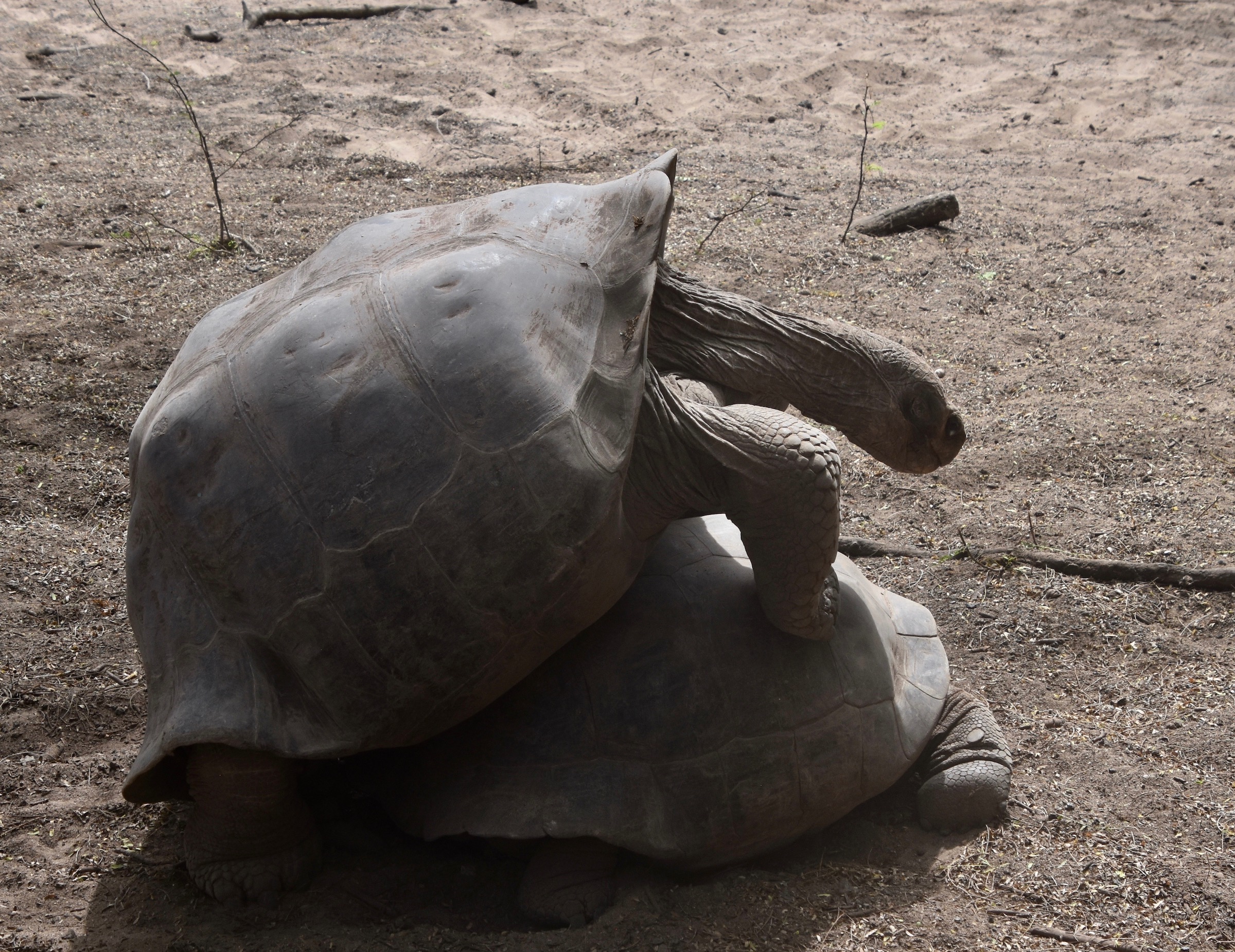
If you ever want to get a good close up of a giant tortoise this is the place to do it. I called this guy Mitch.
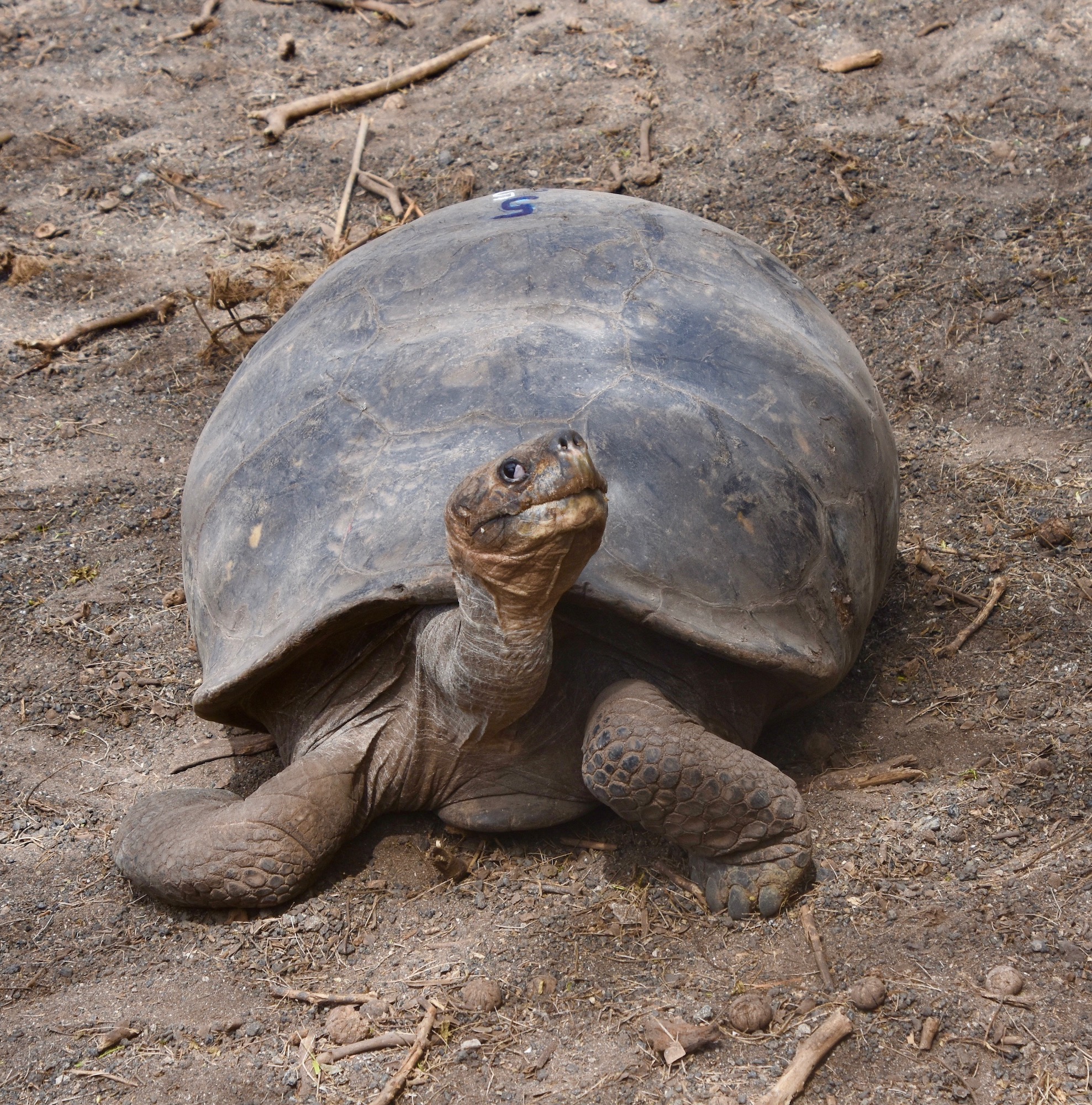
These are juvenile tortoises that will be released into the wild as they get a little older. With luck they’ve still got a century or more of living to do.
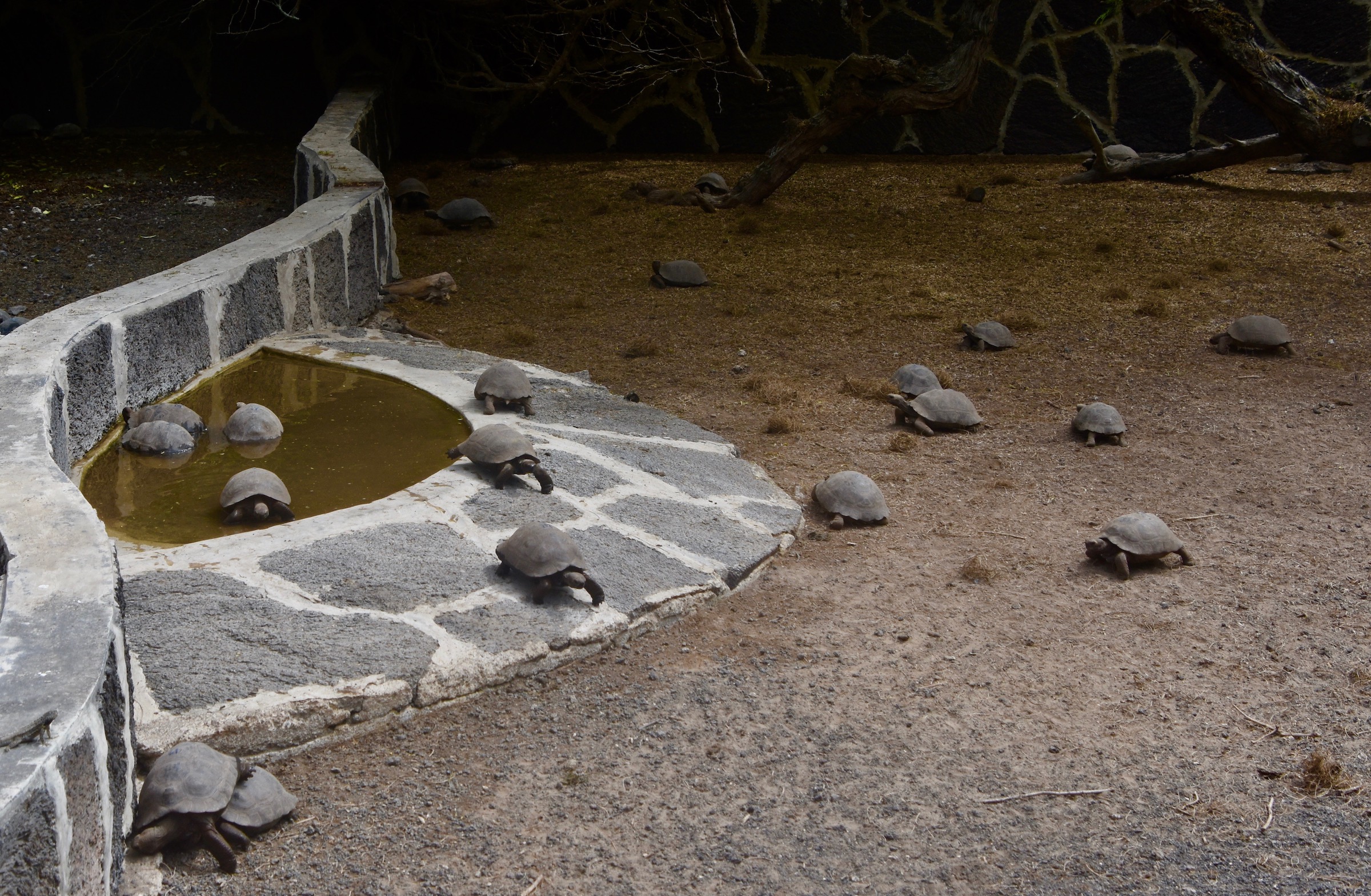
And these are the babies. Not as cute as kittens and puppies, but a whole lot easier to take care of.
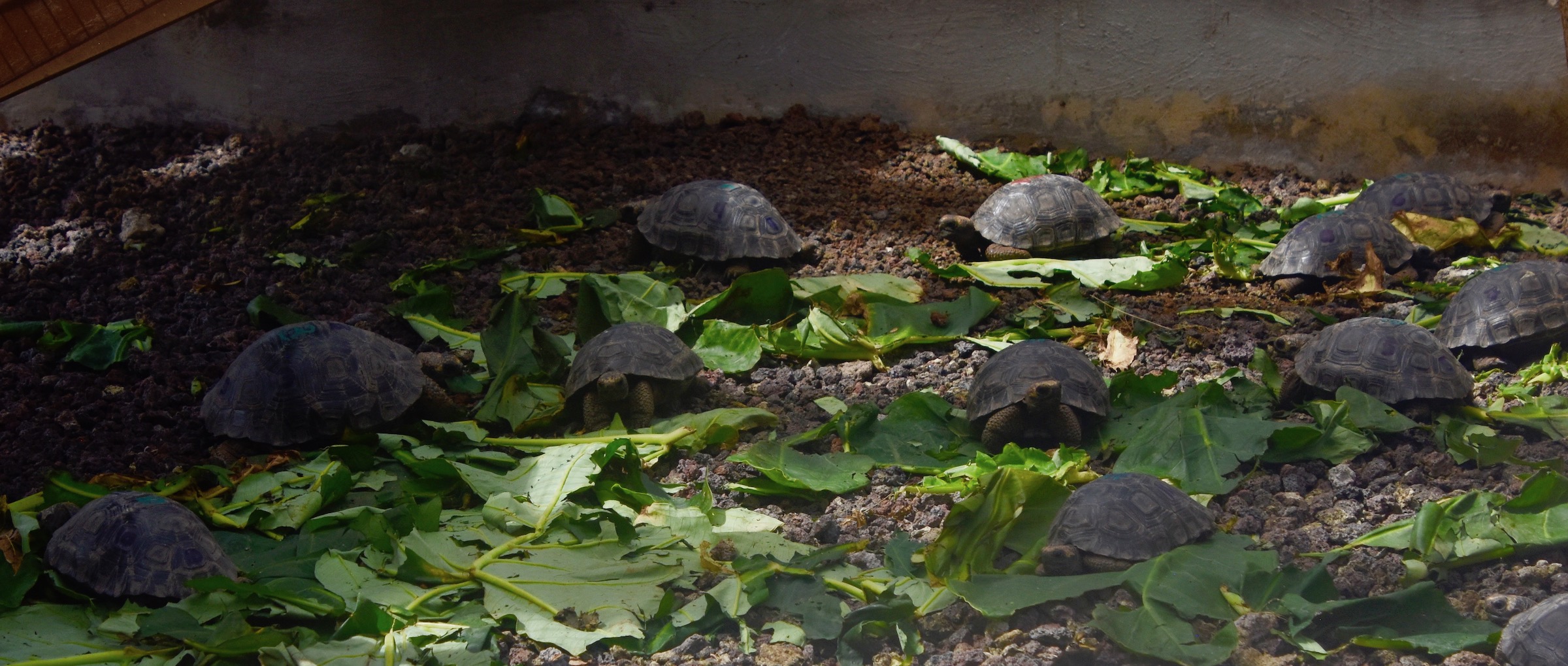
After everybody’s taken their quota of photos of the tortoises we walk a short distance down the road in search of another endemic Galapagos species and soon spot them in what was once an old quarry.
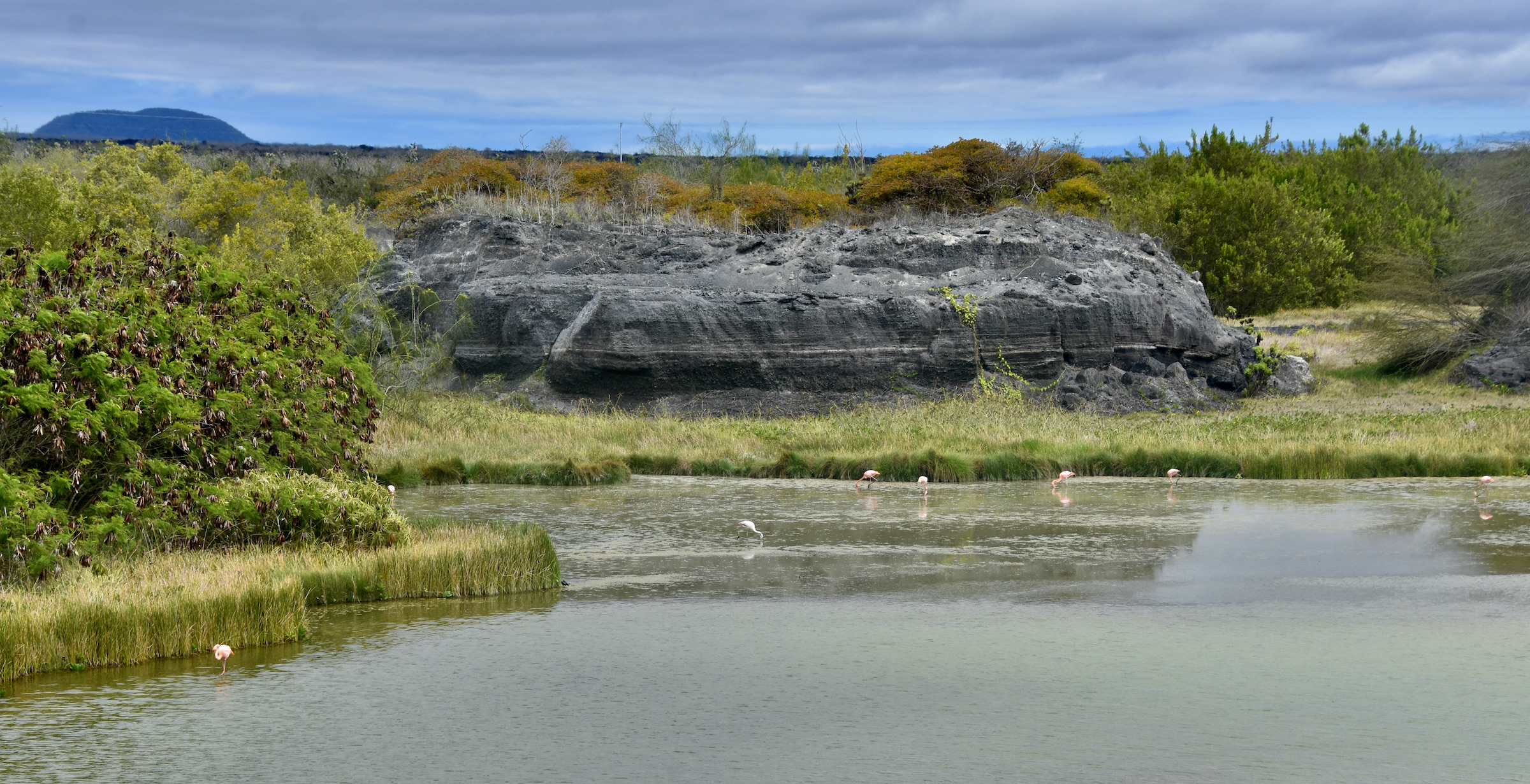
A closer look reveals them to be Galapagos flamingos. There is an argument as to whether or not these are a completely separate species from the American flamingo which is found throughout much of the Caribbean. They are no doubt descended from that species, but are now confined strictly to the Galapagos Islands. There are less than 500 of these birds in existence and we are fortunate to see this many in one place. It was the only time we saw flamingos on the trip.
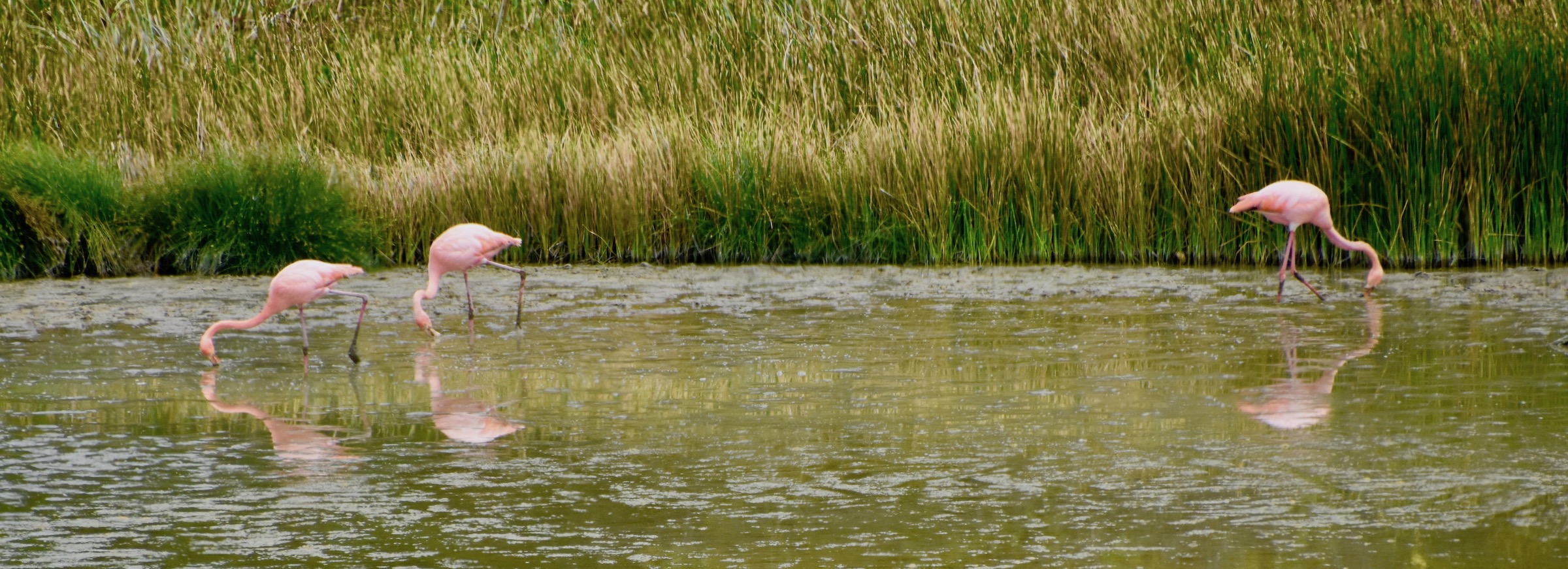
Our guide Alfredo now gets us back on the bus for a short ride to the next trailhead. The Muro de las Lagrimas or Wall of Tears trail leads to an unfinished wall 65 feet high that convicts were once forced to work on between 1945 and 1959. It is alleged that hundreds died under inhumane conditions and not surprisingly the locals believe the place to be haunted. We are not going to walk that far as Alfredo assures us that there is plenty to see without getting to the actual wall, including possibly wild giant tortoises.
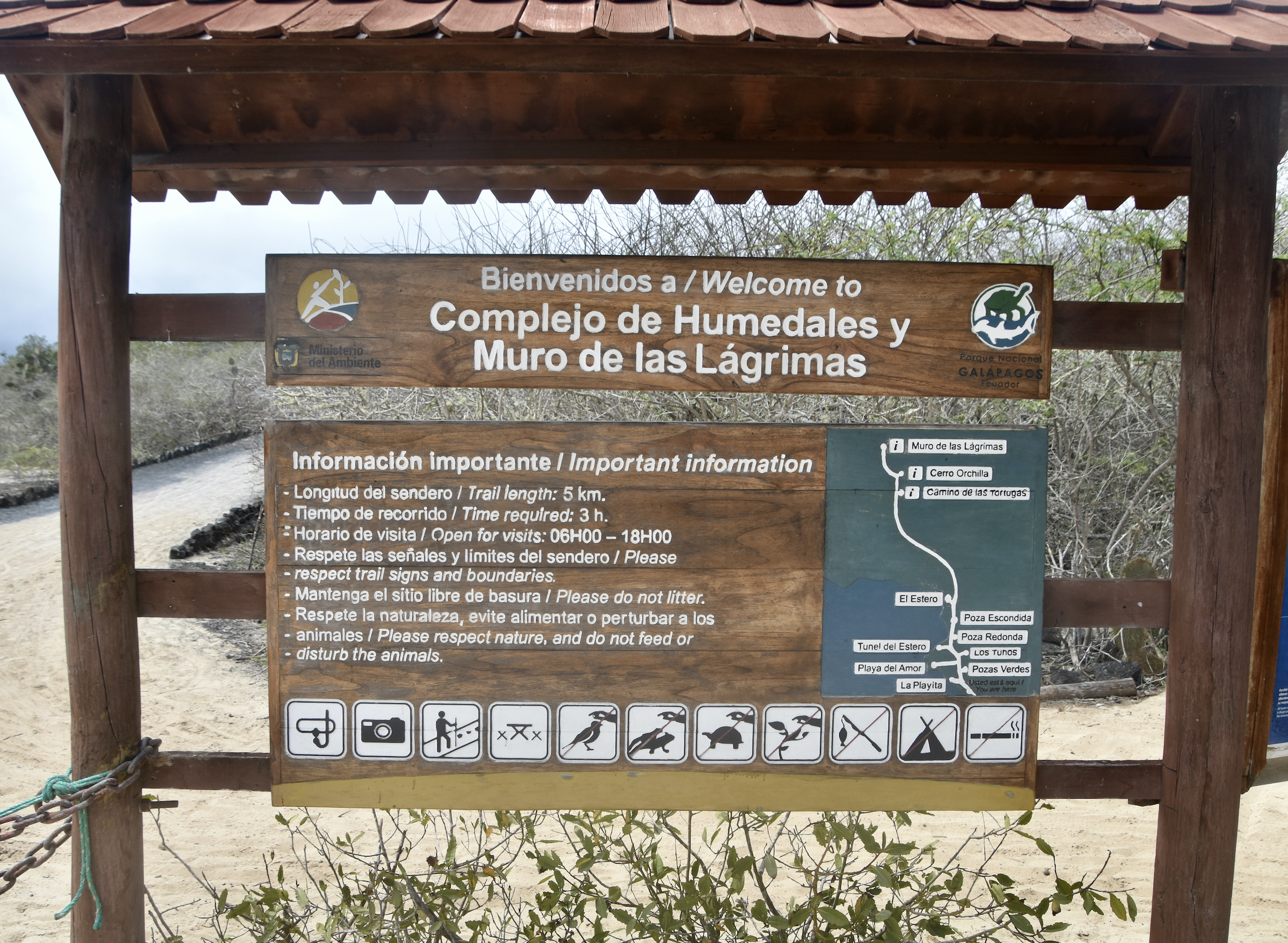
The trail begins at the end of yet another amazing Galapagos beach which is completely deserted.
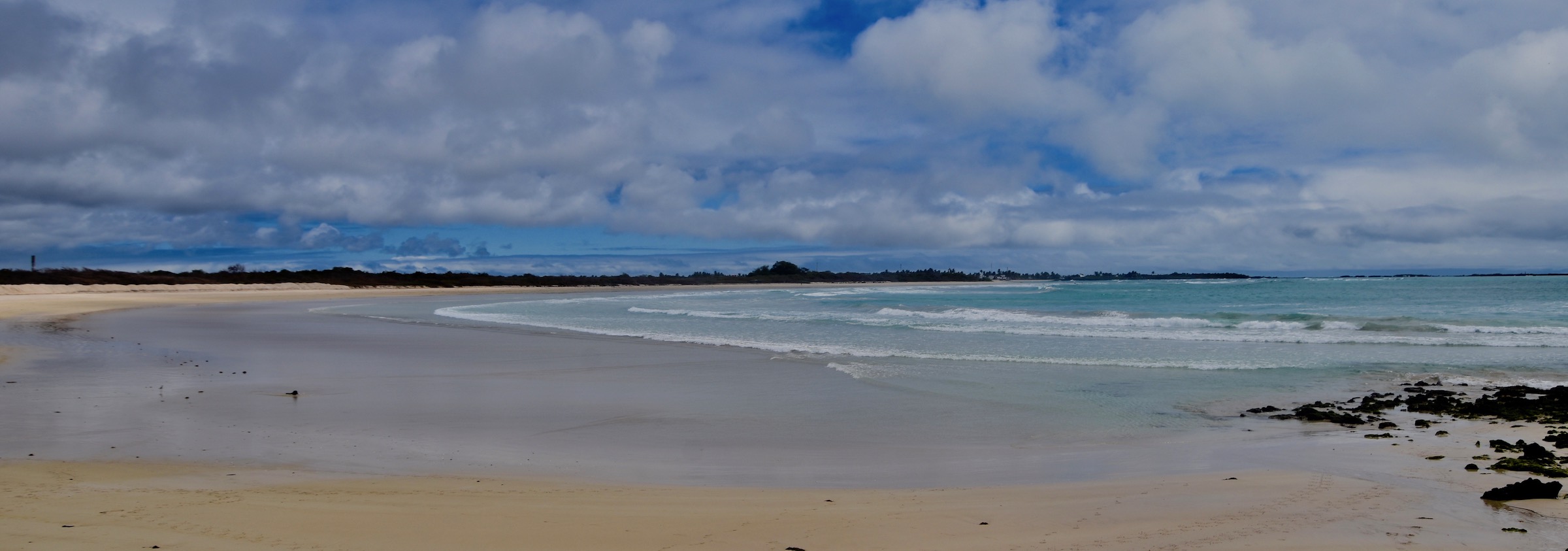
The volcanoes on Isabela are still quite active and last erupted in January, 2022. Lava flows that run down to the ocean are not that unusual and Alfredo leads us to landscape that could not be more different than the beach we see above.
Here everything is black, sharp and forbidding. This is the outer shell of a lava tube that runs hundreds of feet out into the sea.
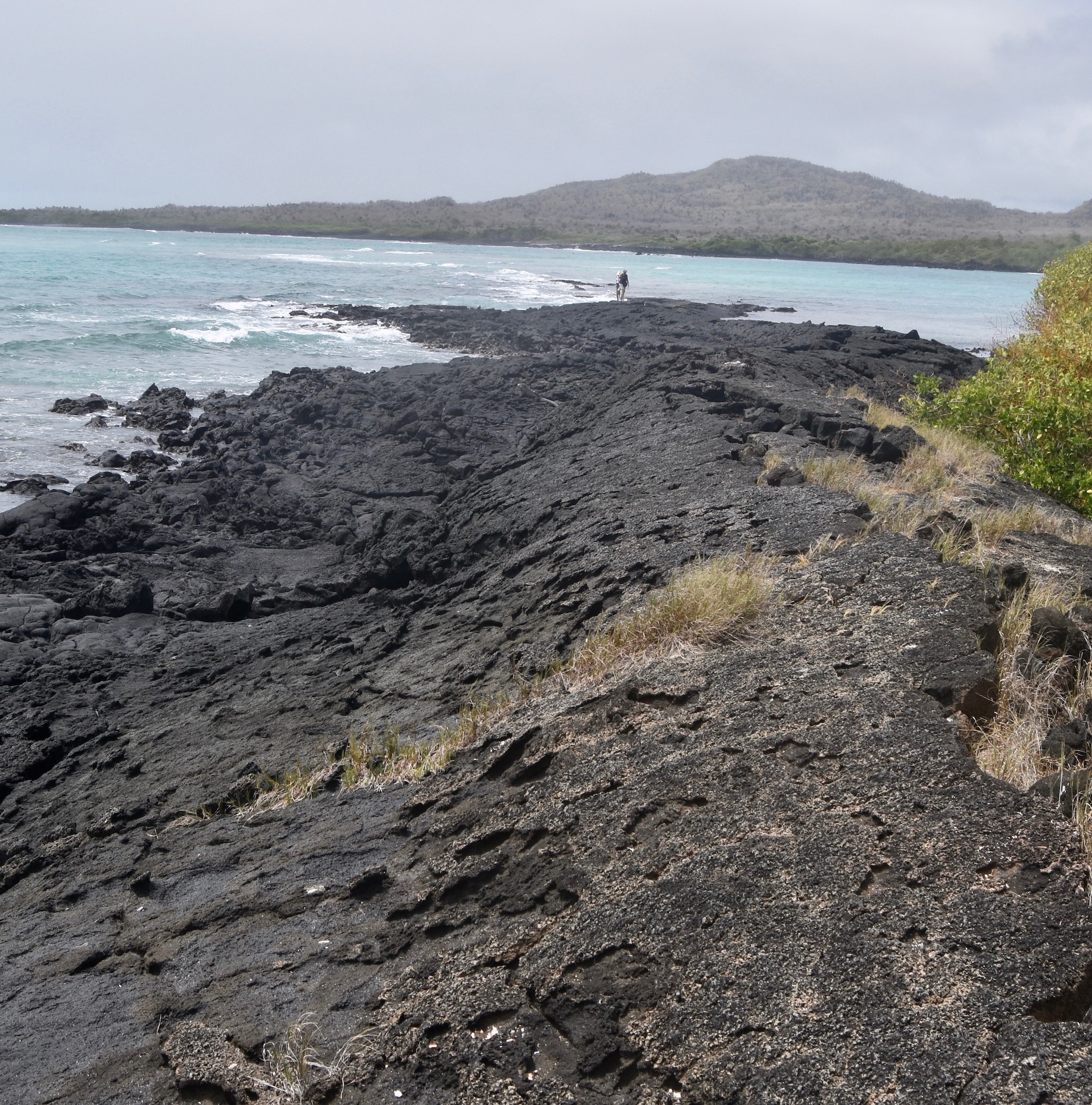
And this is Alfredo inside the lava tube.
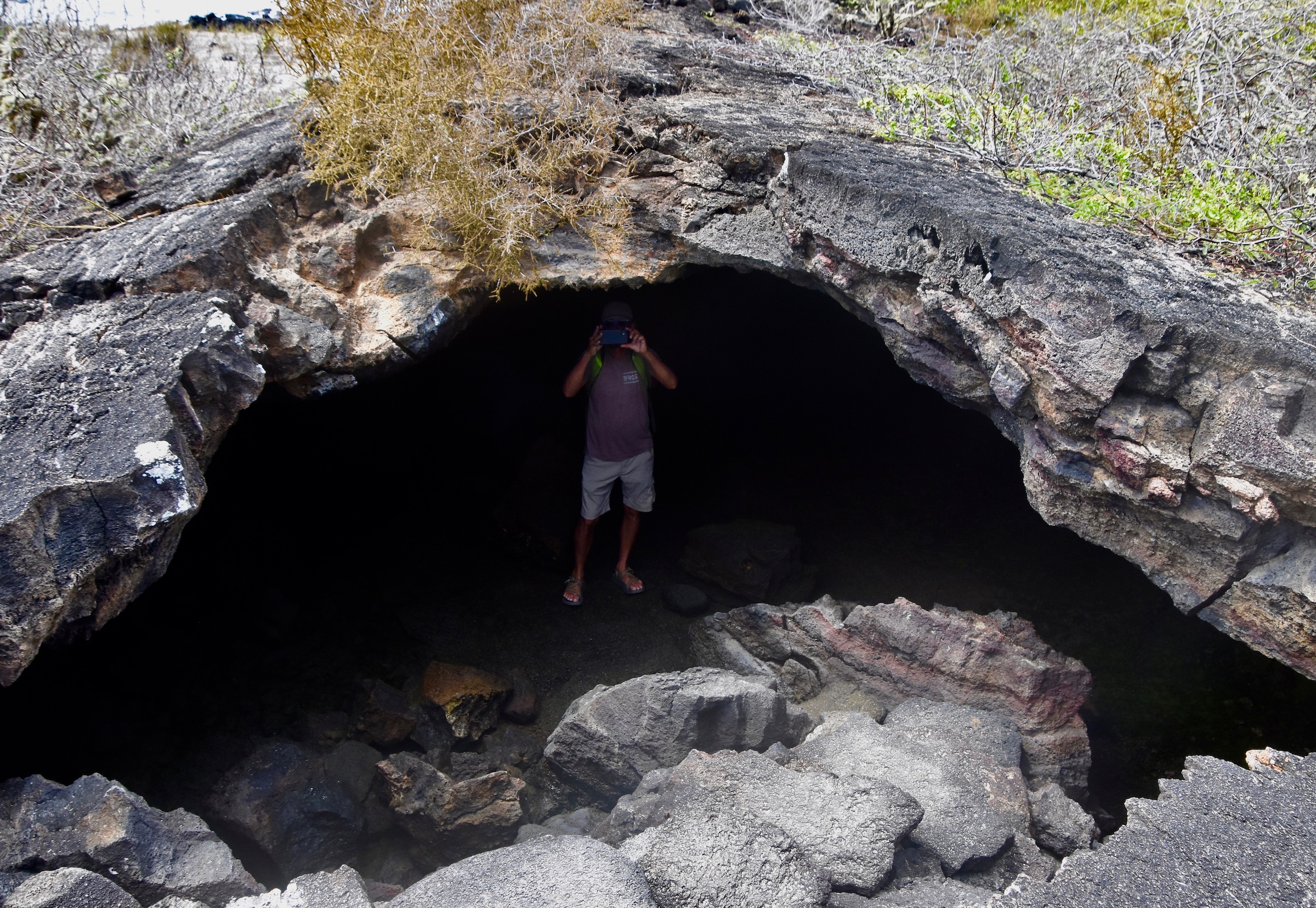
Taking this photo.
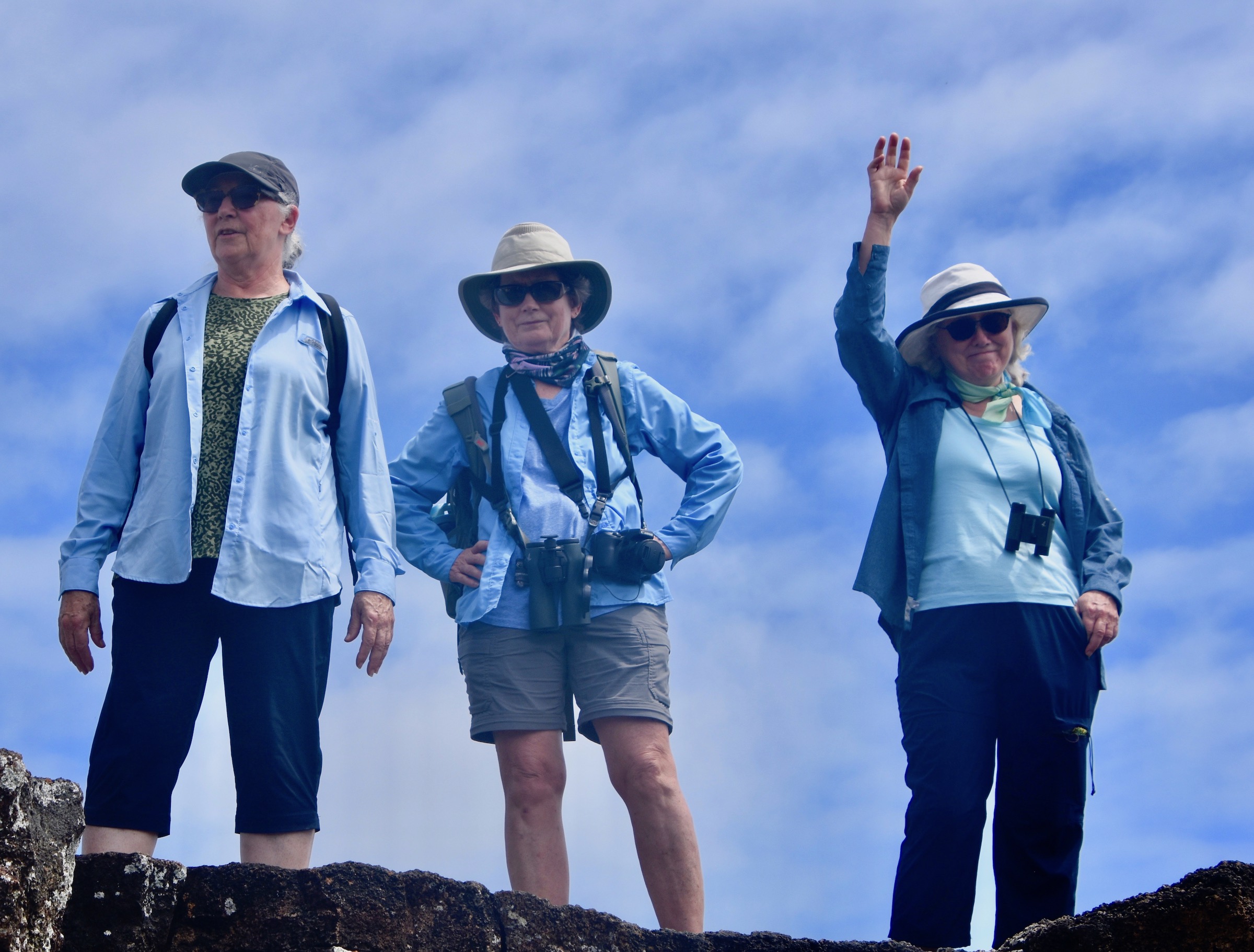
Despite the hostile growing conditions there is a surprising amount of plant life in this environment. Here the lava has been covered in red carpet weed.

And of course you can’t have lava without lava lizards. They are all over the place. This one shows signs of a regrowing tail. Many lizard species have the remarkable ability to have their tails fall off when they are grabbed by a predator and then regrow. Clearly this guy had a close call and is enjoying his second chance at life.
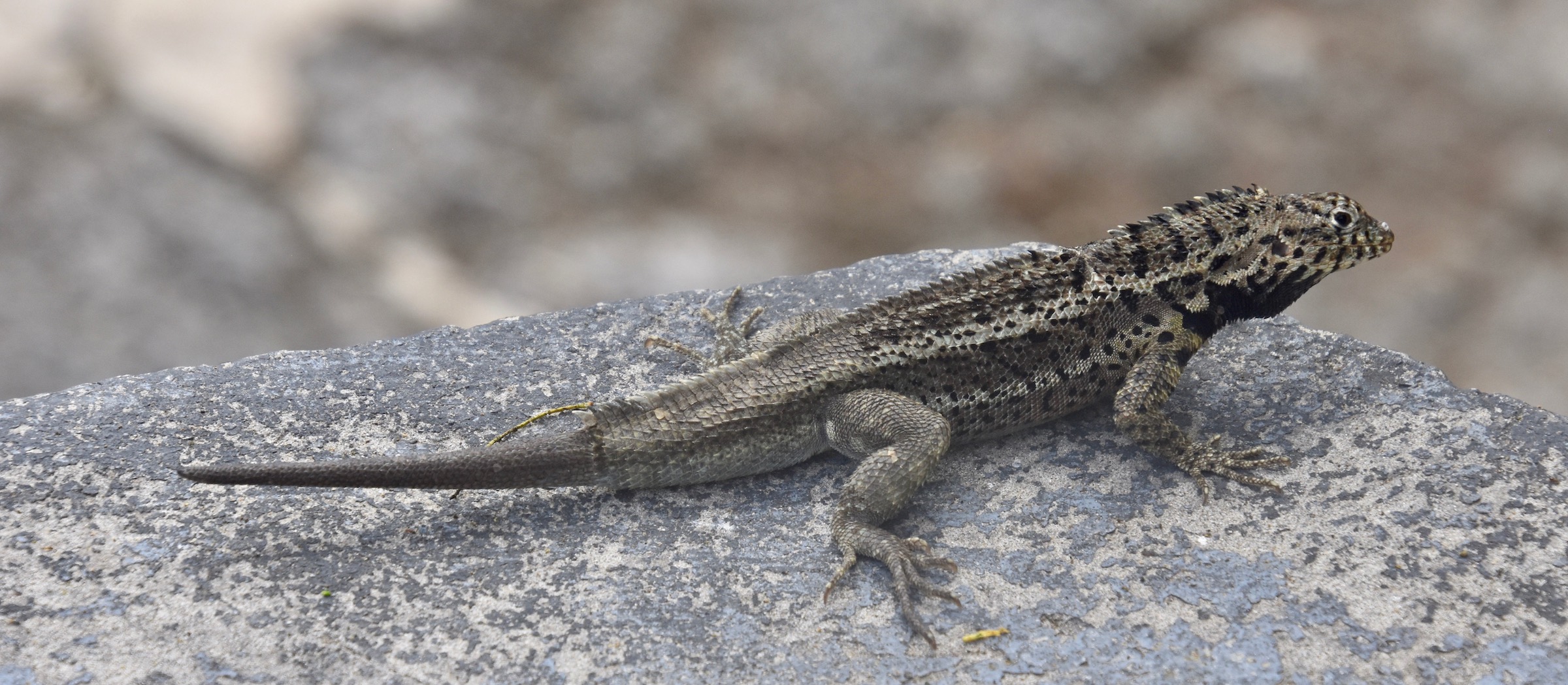
The trail then turns away from the lava field and enters a dense canopied thicket.
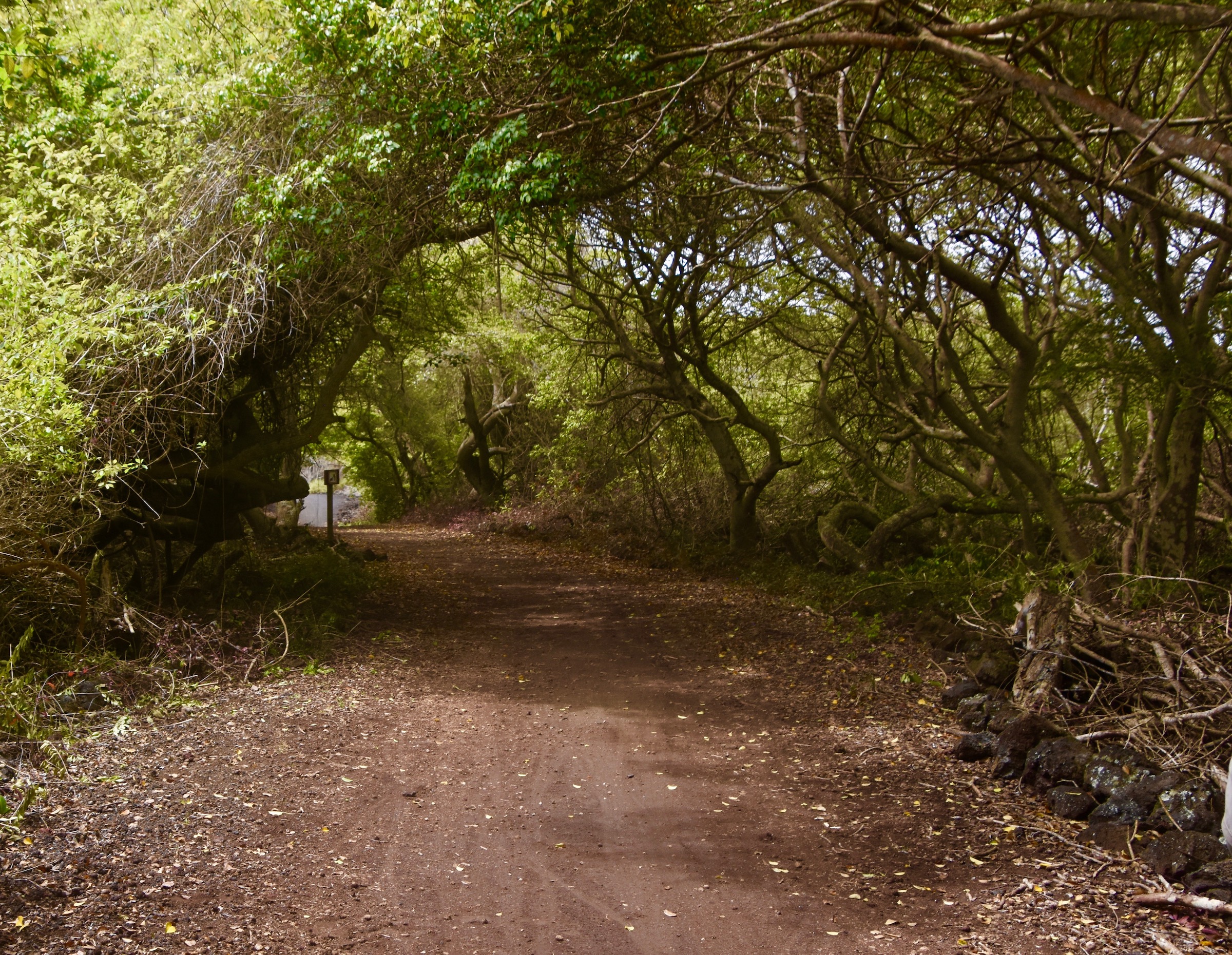
Alfredo points out a massive old mahogany tree that has somehow survived for centuries. These trees are not native to the Galapagos and he speculates that its seeds might have come here with one of the pirate ships that frequented the Galapagos long before there was any permanent settlement. The pirates stocked up on fresh water and giant tortoises before heading back to their hunting grounds off the Pacific coast of South America.
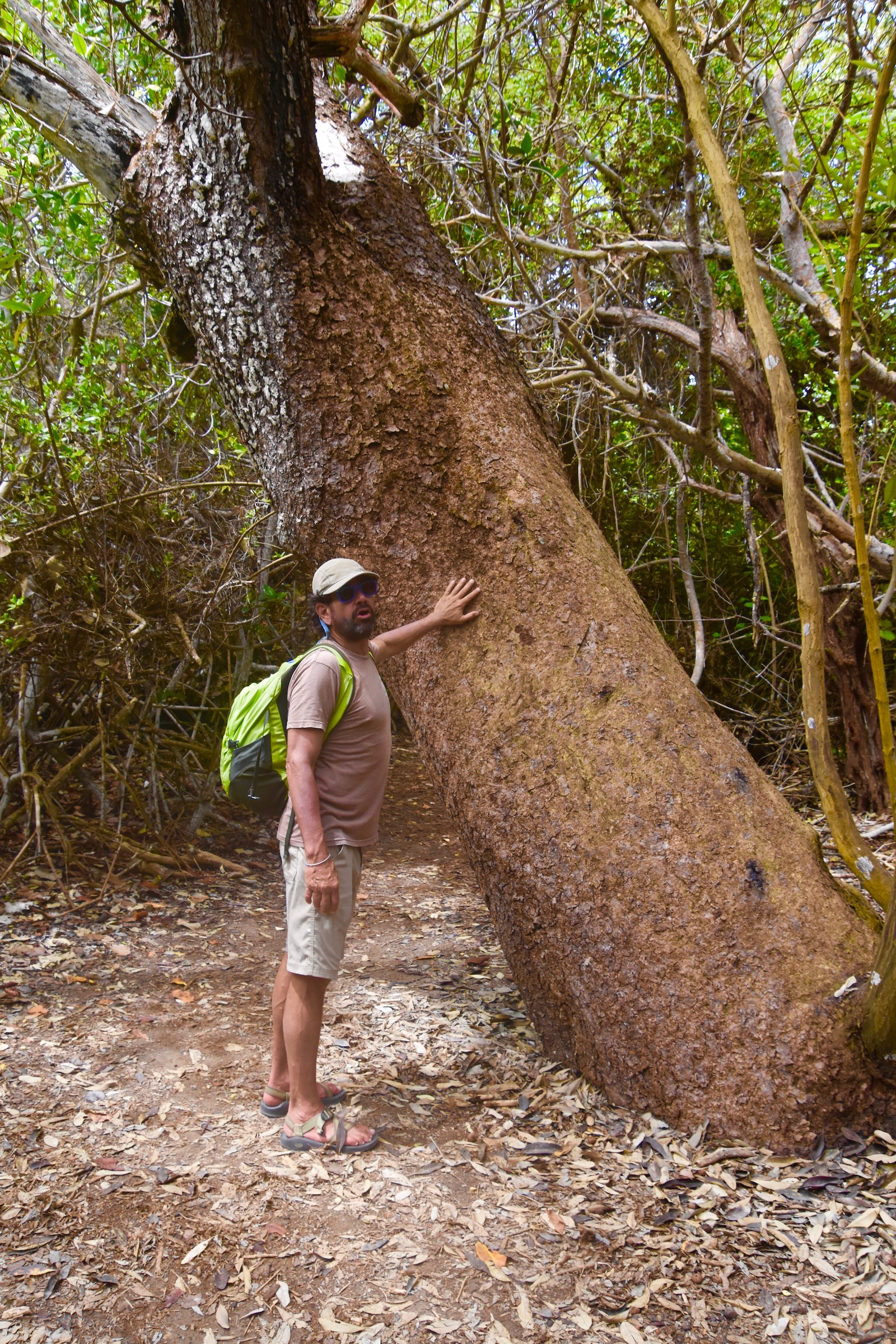
In furtherance of that idea he now leads us through an even more overgrown path to a place where pirates are definitely known to have hung out.
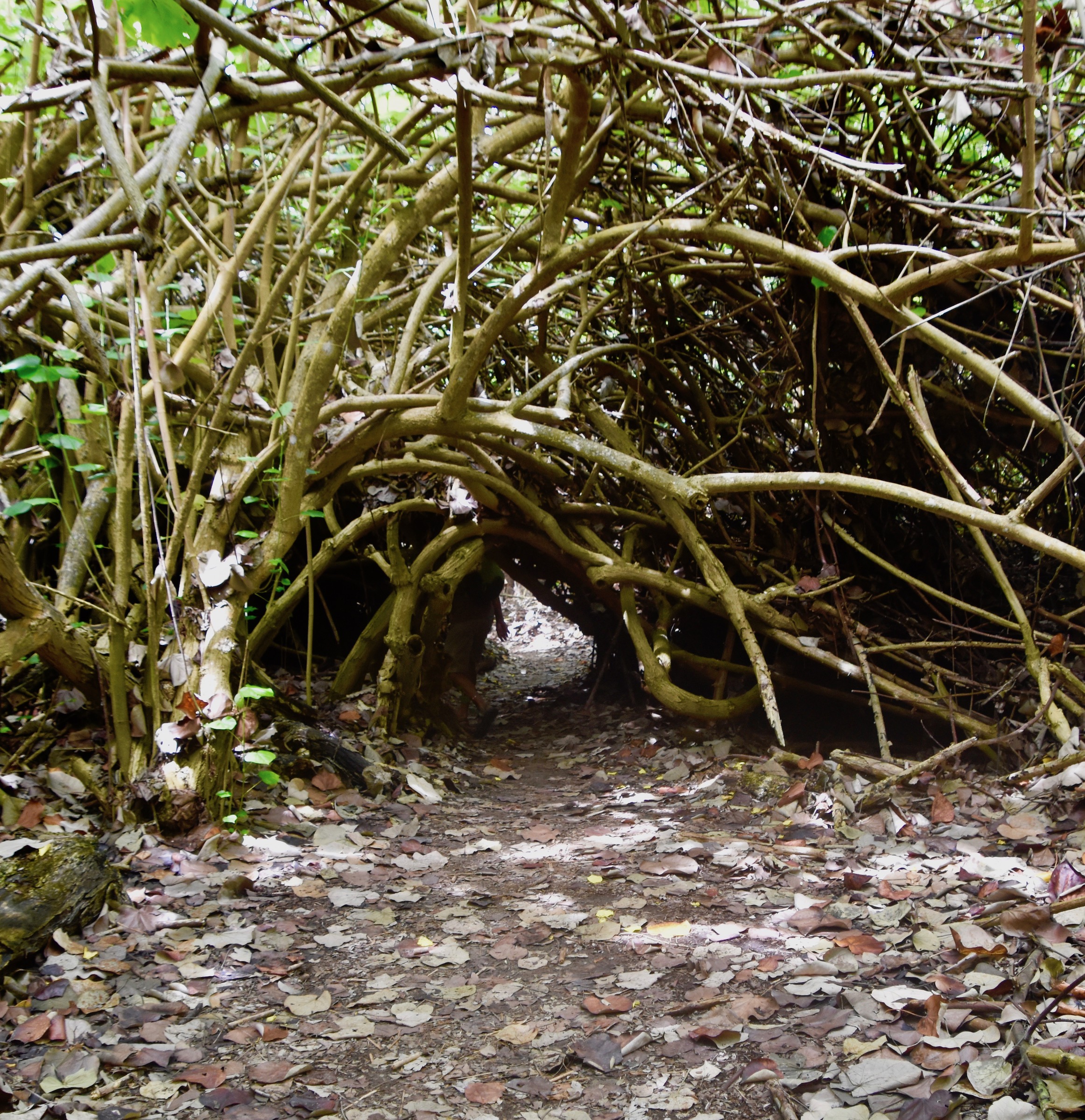
This is El Estero, one of the few places on the Galapagos where fresh water can be reliably sourced which explains why the pirates were here.
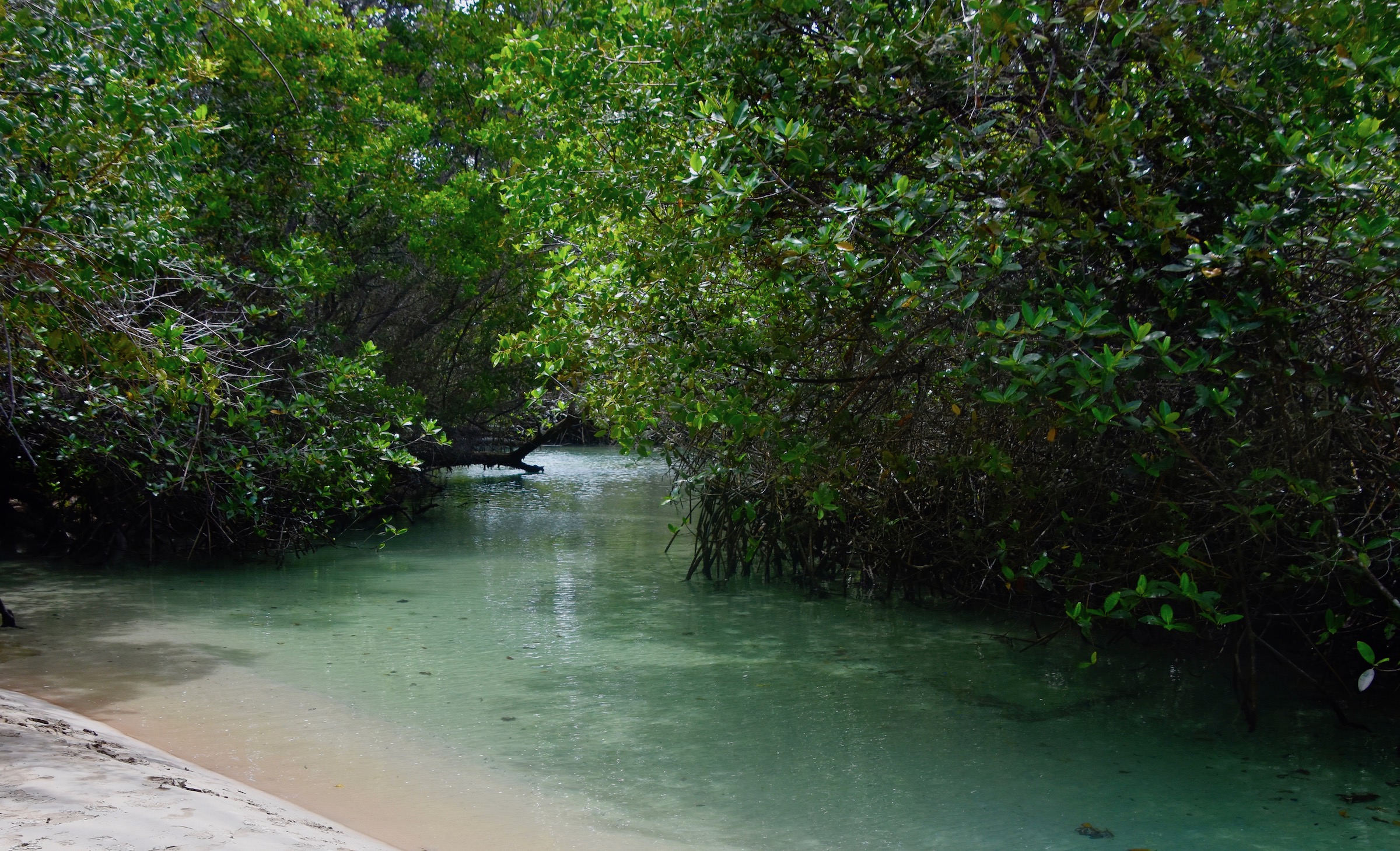
It’s also a pretty nice place for a dip as Alfredo demonstrates.
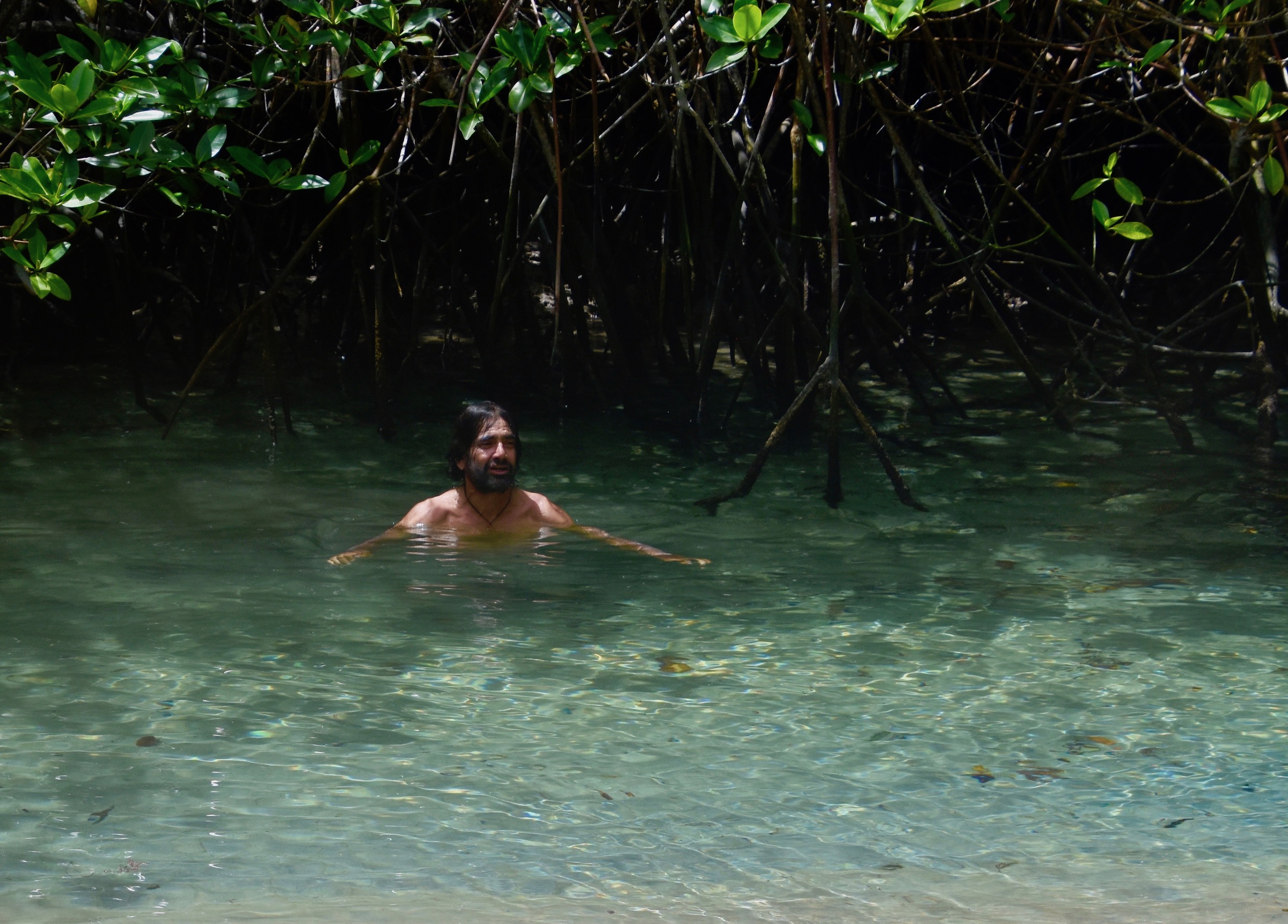
Returning to the main path we comes across this sea lion, proving once again that you can find them almost anywhere on the Galapagos.
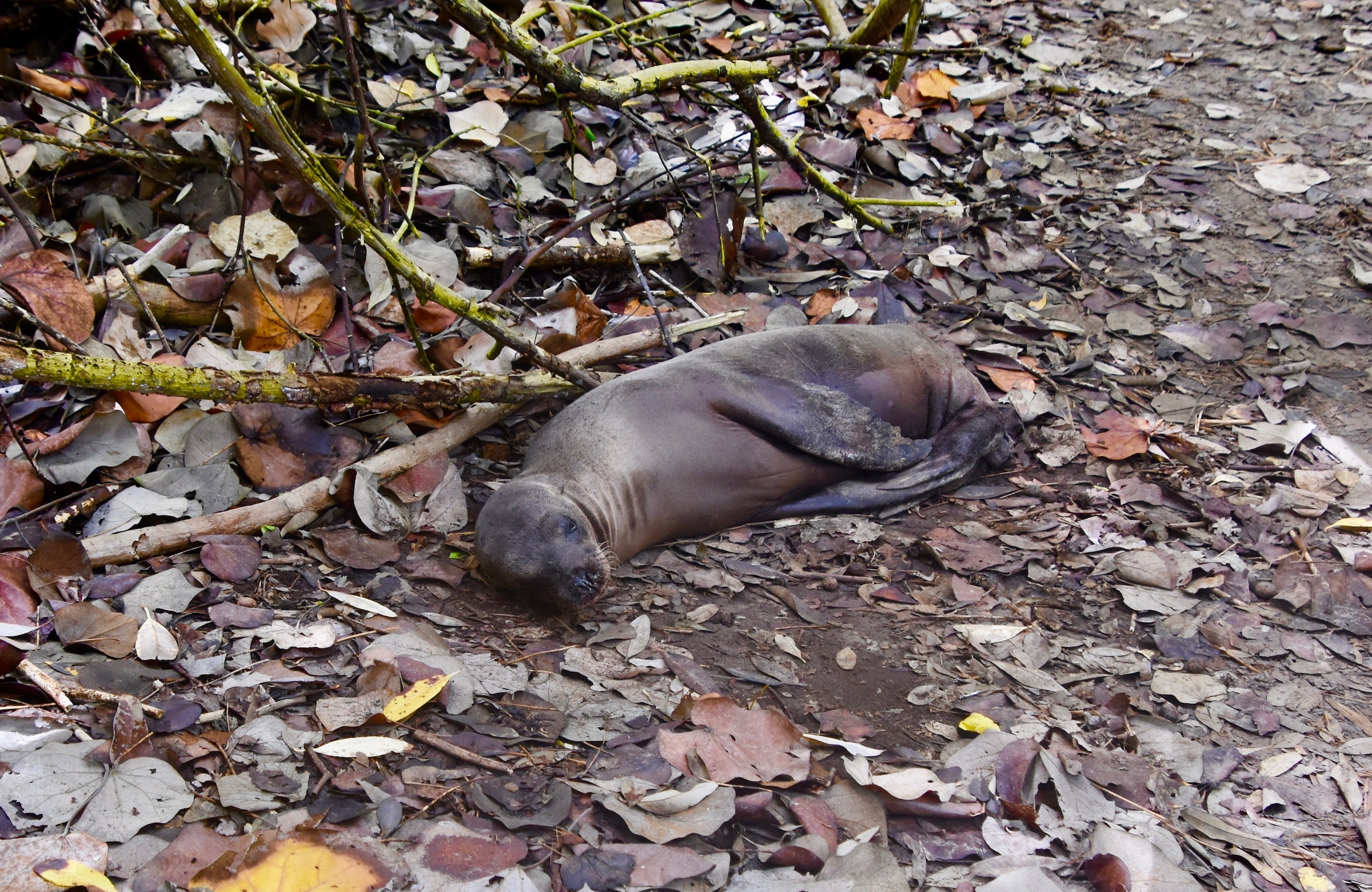
We also come across what I had been hoping to see ever since landing on the Galapagos. This is one of the wild giant tortoises of Isabela and it’s really something to actually see one in its natural environment. This fellow was sauntering along at something just above a snail’s pace as we looked down at him from a small bridge on the pathway.
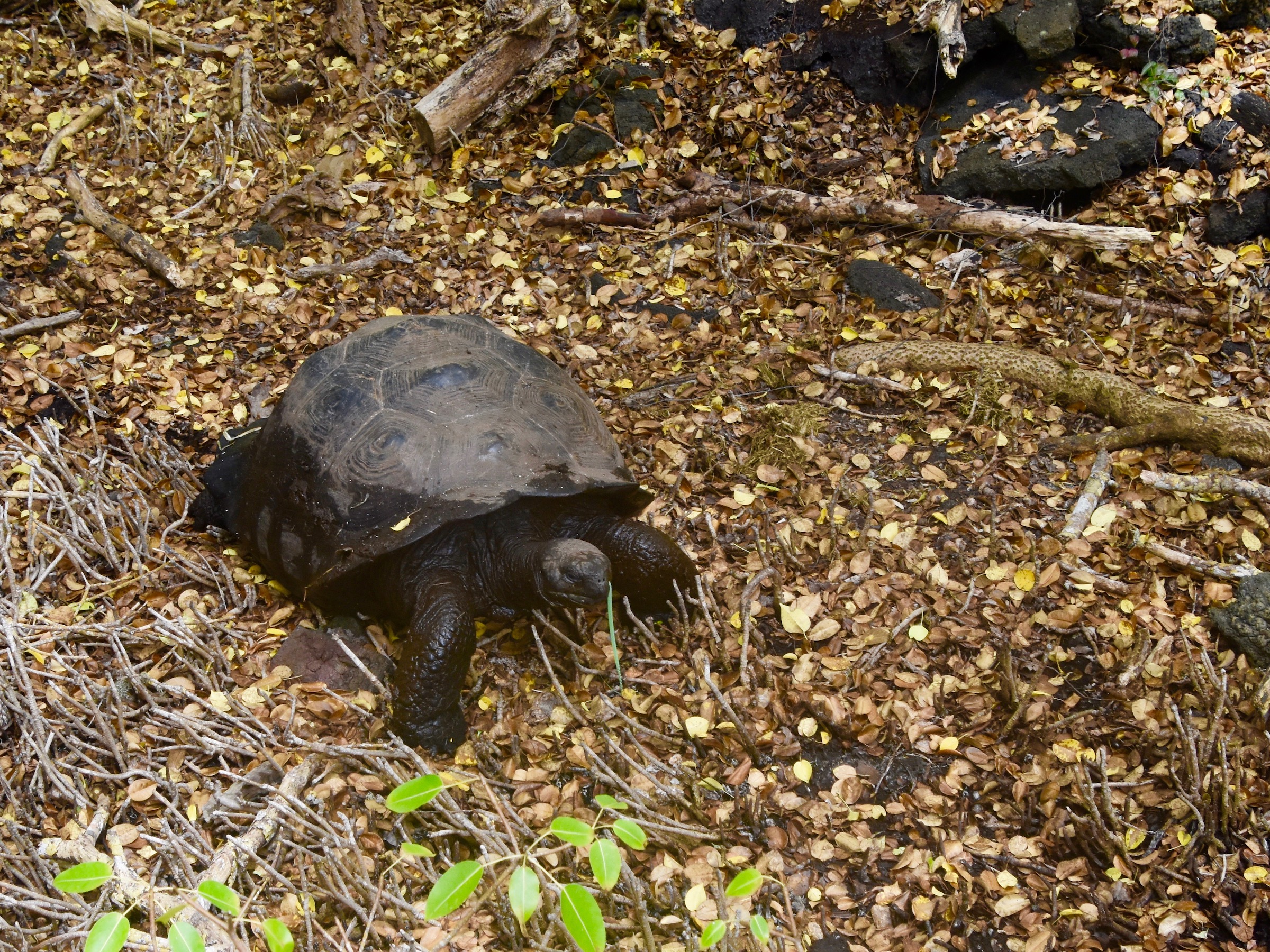
This marked the end of a perfect morning on Isabela. In the next post we’ll head out on a boat again to do some snorkelling with some distance relatives of the giant tortoises, the green sea turtles. I hope you’ll come along.

